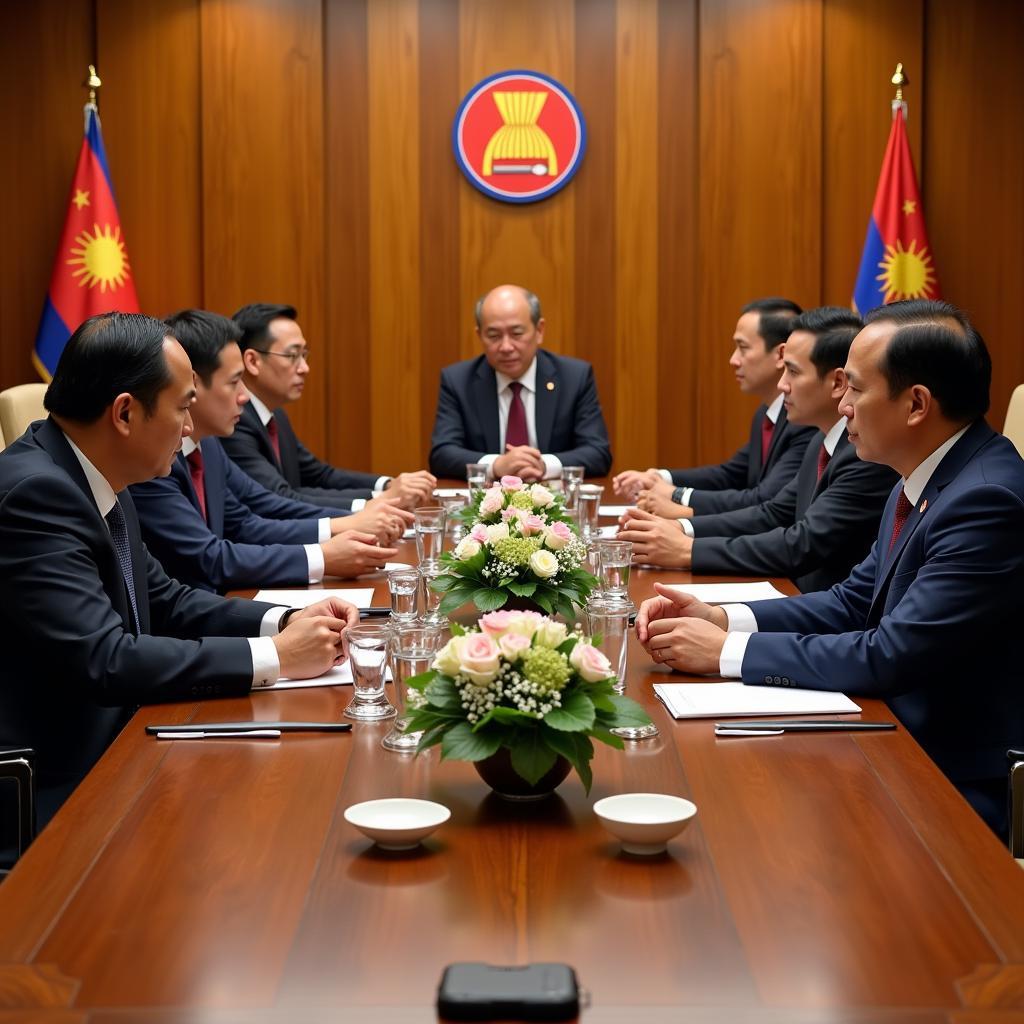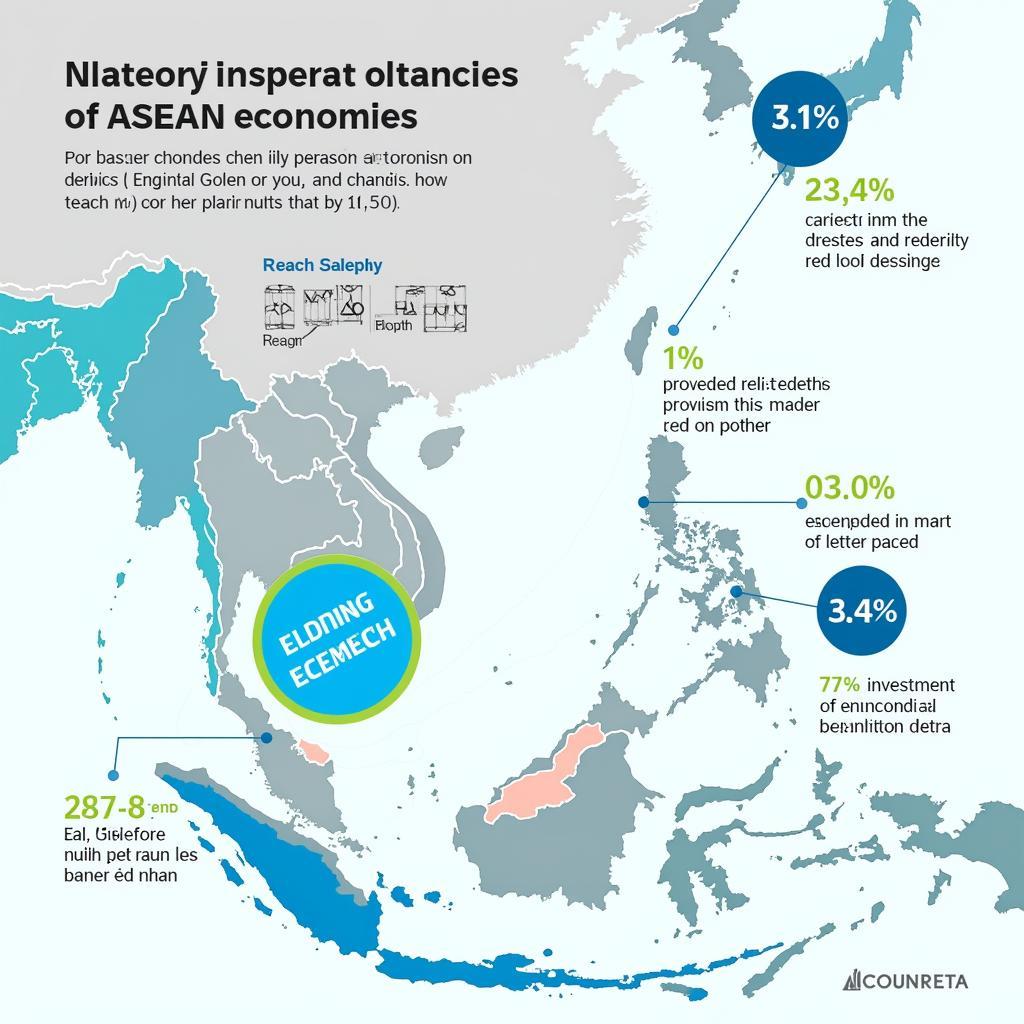The phrase “ASEAN cancel membership” often surfaces in discussions about Southeast Asian geopolitics. But how much truth is there to these claims? While the Association of Southeast Asian Nations (ASEAN) has faced its share of challenges, it remains a robust and relevant organization. This article delves into the complexities of ASEAN membership, exploring the possibility of withdrawal, the historical context, and the potential implications of such a move.
Understanding ASEAN Membership
ASEAN operates on the principle of consensus and non-interference in the internal affairs of member states. This unique approach has fostered cooperation and stability within the region. Importantly, the ASEAN Charter, the organization’s legally binding document, outlines clear procedures for membership withdrawal.
 ASEAN Charter document
ASEAN Charter document
Can an ASEAN Member Country Leave?
Yes, an ASEAN member state can voluntarily withdraw from the organization. Article 10 of the ASEAN Charter explicitly states this right. However, the process is not taken lightly.
Procedure for Withdrawal:
- Formal Notification: A member state wishing to withdraw must formally notify the ASEAN Secretary-General in writing.
- Consultations: After notification, the withdrawing state must engage in consultations with other member states. These discussions aim to address concerns, explore potential solutions, and ensure a smooth transition.
- Withdrawal Effective: The withdrawal takes effect 12 months after the notification is received by the Secretary-General, regardless of the outcome of the consultations.
 ASEAN leaders in discussion at a summit
ASEAN leaders in discussion at a summit
Historical Context: Have Any Countries Left ASEAN?
Since its inception in 1967, no country has ever withdrawn from ASEAN. This speaks volumes about the organization’s enduring relevance and the strong bonds among member states. While disagreements and tensions have arisen, ASEAN has consistently served as a vital platform for dialogue and conflict resolution.
Why Might a Country Consider Leaving ASEAN?
While hypothetical, several factors could theoretically lead a country to contemplate withdrawing from ASEAN:
- Unresolved Disputes: Persistent disagreements over territorial claims, maritime boundaries, or resource sharing could potentially create enough friction to make membership seem untenable.
- Shifting Geopolitical Alliances: A significant realignment of a country’s foreign policy priorities or alliances with external powers could potentially lead to a reassessment of its ASEAN membership.
- Internal Political Dynamics: Domestic political upheaval, changes in leadership, or shifts in public opinion toward regional integration could also influence a country’s stance on ASEAN membership.
 Infographic showcasing ASEAN economic integration
Infographic showcasing ASEAN economic integration
The Implications of an ASEAN Exit
A country’s withdrawal from ASEAN would have far-reaching consequences:
- Economic Impact: Exiting ASEAN’s free trade agreements and economic cooperation initiatives could disrupt trade flows, impact investments, and potentially hinder economic growth.
- Geopolitical Repercussions: A withdrawal could alter the regional power balance and potentially lead to instability. It could also undermine ASEAN’s credibility as a regional bloc.
- Diplomatic Fallout: The withdrawing state could face strained relationships with former ASEAN partners.
Conclusion
While the ASEAN Charter allows for member withdrawal, the process is complex and not to be taken lightly. The organization’s enduring strength lies in its ability to foster dialogue, build consensus, and promote regional stability. While challenges remain, ASEAN’s commitment to cooperation and integration continues to shape a brighter future for Southeast Asia.
Frequently Asked Questions
1. What are the benefits of being an ASEAN member?
2. What is the role of the ASEAN Secretary-General?
3. How does ASEAN resolve conflicts among member states?
4. What are the major challenges facing ASEAN today?
5. How does ASEAN engage with other regional organizations?
Need More Information?
Contact us:
- Phone: 0369020373
- Email: [email protected]
- Address: Thôn Ngọc Liễn, Hiệp Hòa, Bắc Giang, Việt Nam
Our dedicated team is available 24/7 to assist you. Explore more insightful articles on ASEAN and Southeast Asia on our website.

